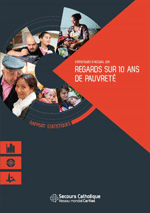News
Published on Fri, 2012-12-07 12:55
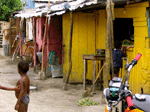
Living in the Batey Libertad.
(Photo: Yspaniola.org)
|
To put an end to poverty, the authorities in the Dominican Republic must promote the equitable distribution of wealth, broaden and improve the quality of education, health services, employment and social security, and implement policies to help the poorest and most vulnerable people. But, according to civil society organizations in their contribution to the Social Watch Report 2013, the official rhetoric about social investment and human development is contradicting by an economic policy of cutting expenditures and increasing taxes, in accordance with conditions imposed by the International Monetary Fund.
|
Published on Fri, 2012-11-30 06:50

Pro-democratic demonstration
in Asunción, in june.
(Photo: Decidamos-Paraguay)
|
“The social contract was broken” in Paraguay by the “parliamentary coup” that ousted President Fernando Lugo on 22 June 2012, informs Decidamos, a campaign for citizen rights, in its contribution to the Social Watch report 2013.
Lugo became president with 41% of the votes, and in 2011, three years into his Administration, he had the approval of 50% of the population.”
|
Published on Thu, 2012-11-29 09:29

Dhaka, capital city of
Bangladesh, under the water in
2004. (Photo: EquityBD)
|
The international community must rule out the “one size fits all” approach and design an “effective sets of goals” needed to ensure a sustainable development, letting the solutions to be defined by each country, recommends the Social Watch coalition in Bangladesh, a nation severely affected by climate change. The new framework must ensure “equity”, “justice”, “the preservation of Mother Earth and the life and livelihood of all human beings,” adds the Bangladeshi contribution to the Social Watch Report 2013.
|
Published on Thu, 2012-11-29 09:21
Women and immigrants living in France have been hit hardest in France by the global economic crisis, according to Secours Catholique. Women account for 57 percent of people seeking help from this member organization of the Social Watch network, almost 10 percent more than a decade ago. In the past decade, poverty in France, far from diminishing, has taken root. Getting out of the poverty trap is taking longer than ever before.
|
Published on Tue, 2012-11-27 07:46
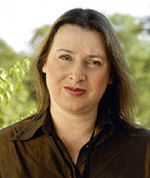
Genoveva Tisheva. (Photo: EWLA)
|
“The Bulgarian government continues the trends of sacrificing social and economic rights of the citizens with the justification of economic and financial stability, thus continuing to sustain the phenomenon of ‘stability in poverty’,” warned last week the Bulgarian Gender Research Foundation (BGRF, member of Social Watch since 1999) in its report to the UN Committee on Economic, Social and Cultural Rights.
|
Published on Mon, 2012-11-26 08:10
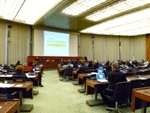
Council of the UPOV in Geneve.
(Photo: Magrama)
|
The Council of the International Union for the Protection of New Varieties of Plants (UPOV) adopted this month new rules on the granting of observer status to its meetings that will restrict the participation of NGOs and farmer communities, especially their biggest and more important organization worldwide, La Via Campesina. The UPOV Convention has over the years been systematically changed to increasingly favor formal plant breeders, endowing them with rights that are far stronger than those of farmers, warned the Third World Network (TWN).
|
Published on Mon, 2012-11-26 08:05

“People over profits,” a global
demand. (Photo: Fibonacci Blue
/CC License)
|
“It’s not just money that’s required for achieving the MDGs. Another reason why we are so behind with them is the Philippines’ warped development. Yes, there is economic growth, but it has been accompanied by greater inequality, unemployment, underemployment and environmental degradation,” wrote Jessica Cantos, Co-Convener of Social Watch Philippines, in a report published by New Internationalist, newspaper specialized on issues of world poverty and inequality.
|
Published on Mon, 2012-11-26 08:03
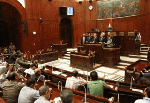
Egyptian Constitutional
Assembly. (Photo: ANHRI)
|
The constitutional declaration issued by the Egyptian president Mohamed Morsi last week “contravened the revolution’s goals of democratization and exploited the expansive powers he granted to himself shortly after his election to arrogate unparalleled powers and immunize his decisions against judicial oversight,” warned 22 human rights organizations.
|
Published on Fri, 2012-11-23 14:25
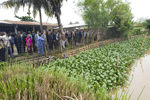
Sustainable agriculture project
in Benin: the poorest people not
allways enjoy the benefits.
(Photo: Eskinder Debebe/UN)
|
"The MDGs have hardly induced changes and outcomes in Benin" concludes the report from the Social Watch coalition in this West African country, because "the current model based on economic growth at the top does not benefit the majority of the people".
|
Published on Fri, 2012-11-23 14:22

Illustrationon the eight MDG
created by students of Hollar
Graphic School, Prague.
|
Achieving food security as a common responsibility of the South and North, promoting decent work and providing electrification for all by 2030 at the national level: those are the focuses of attention of a broad non-governmental alliance created in the Czech Republic against poverty. To achieve them, the Czech Social Watch coalition thinks it necessary to rebuild the financial architecture at the global level.
|

|




